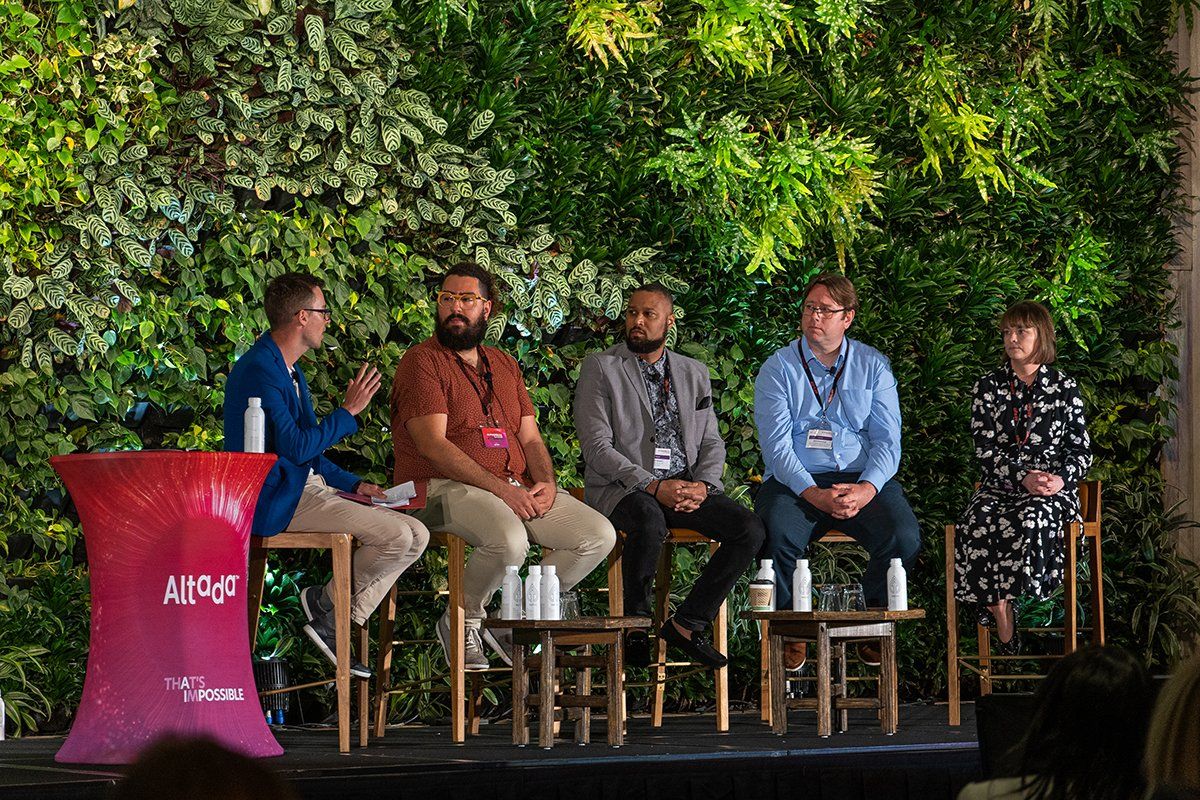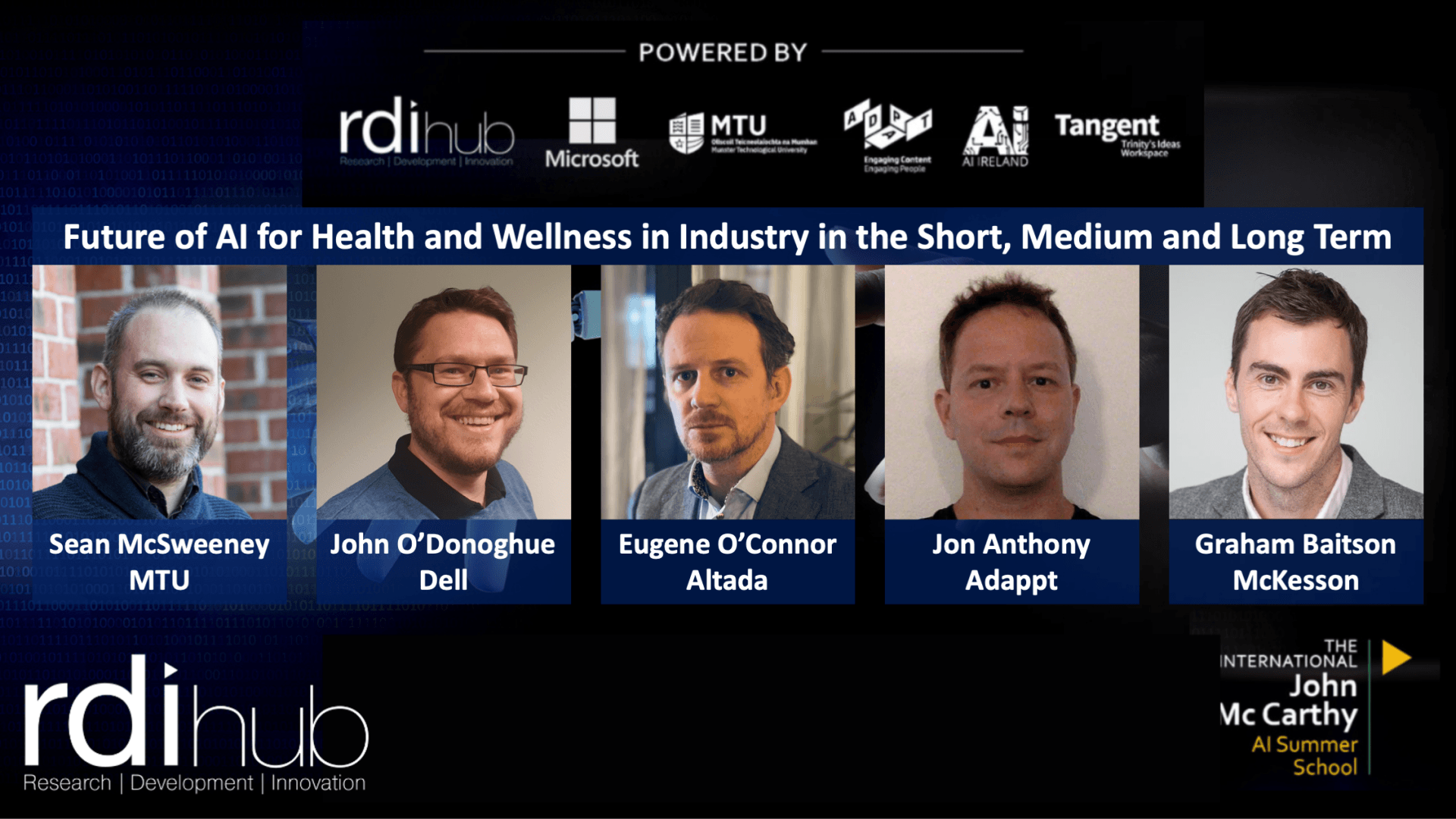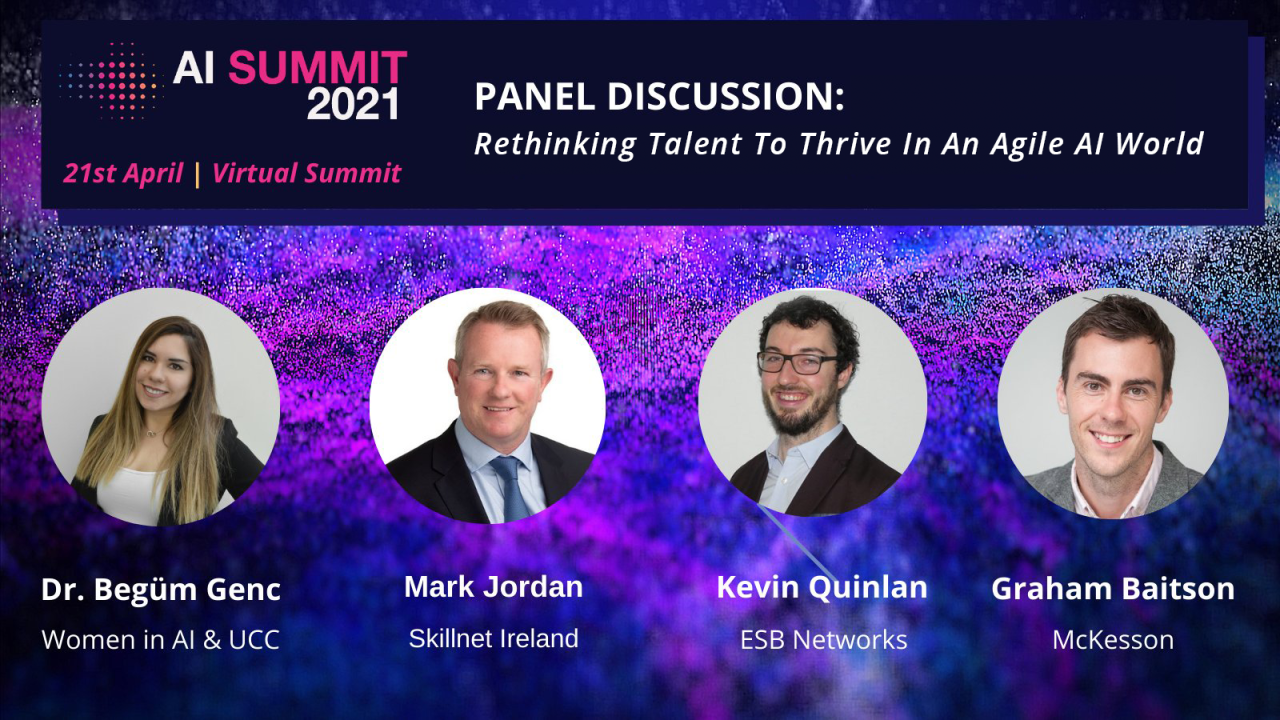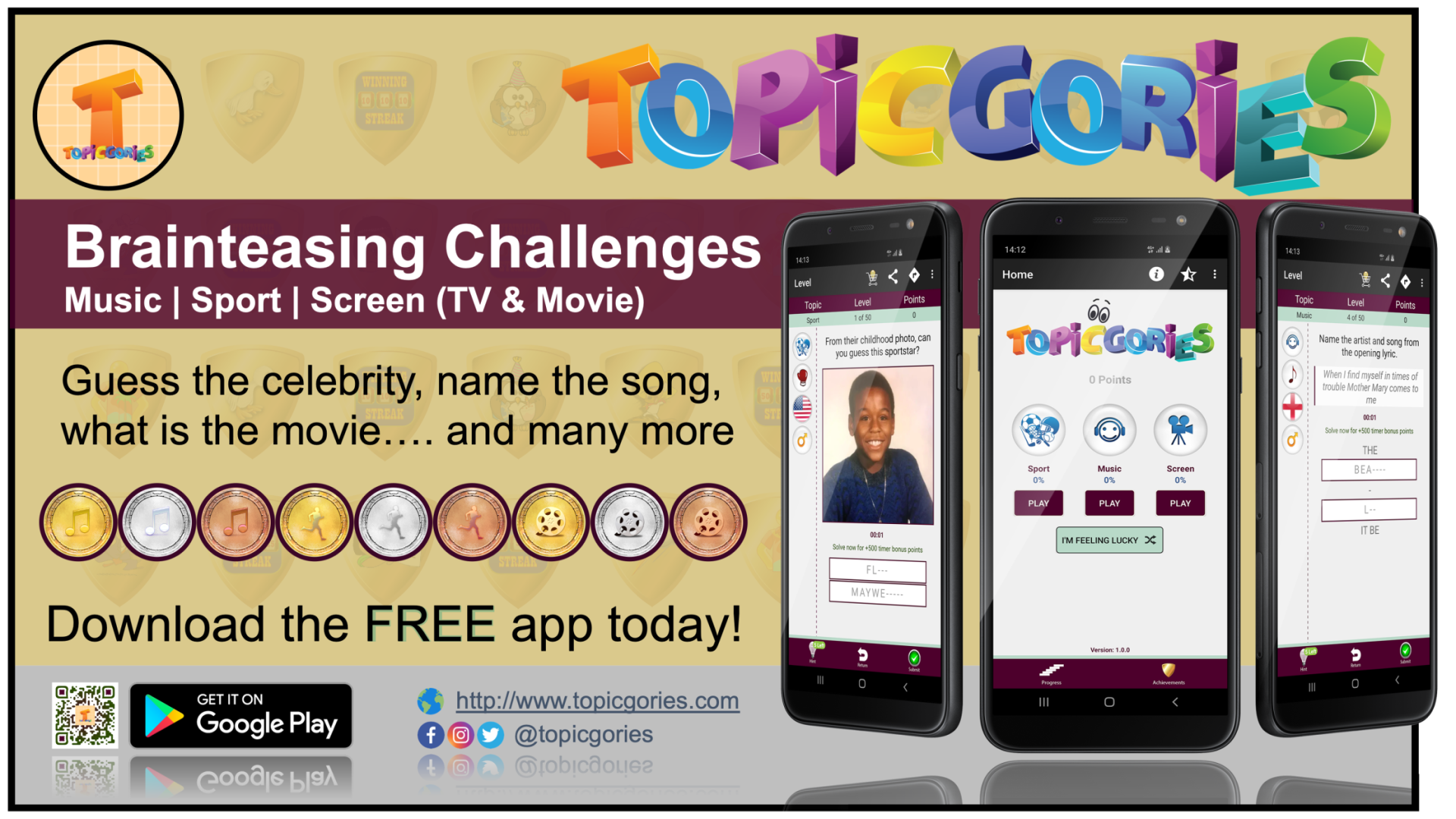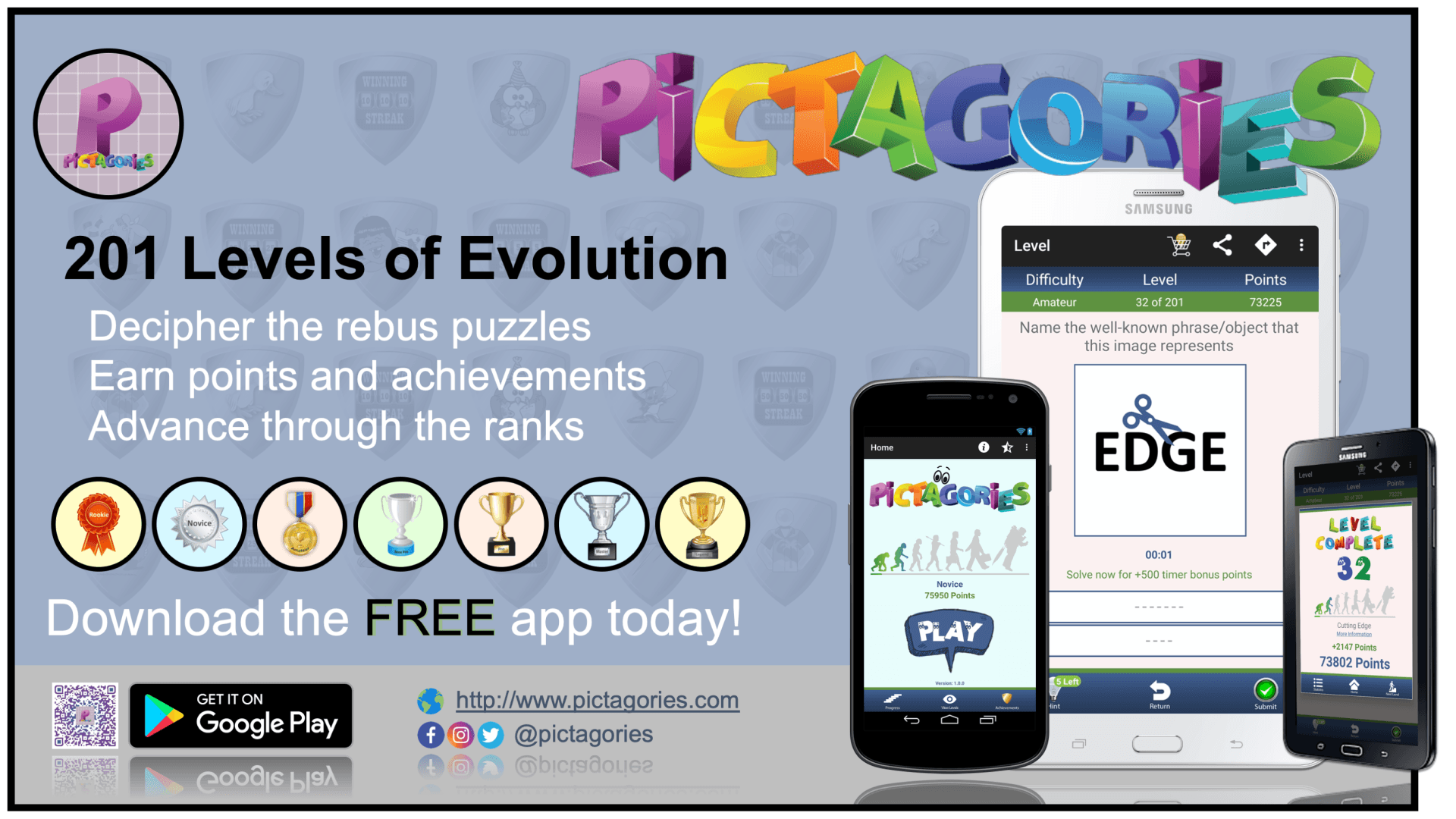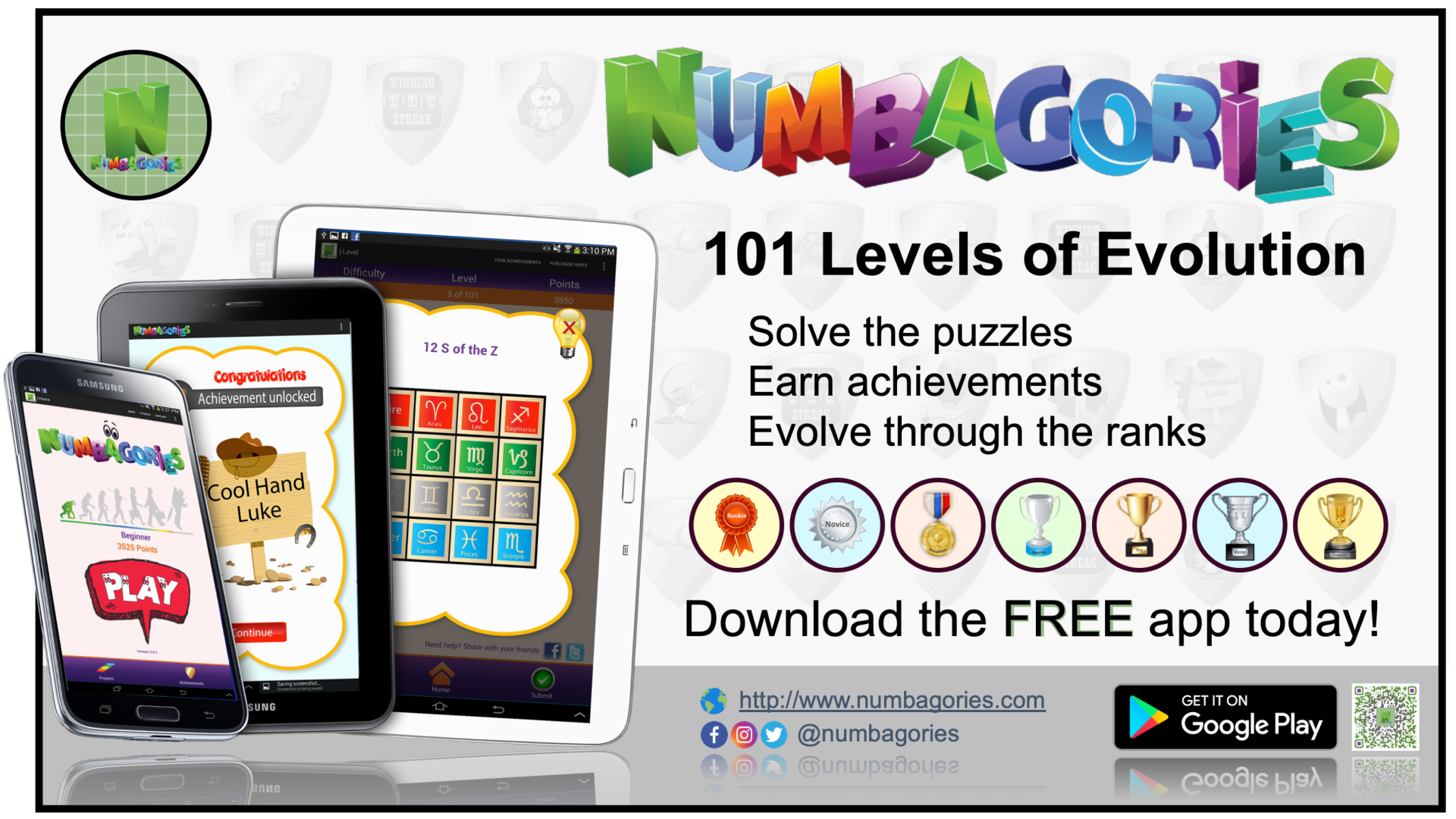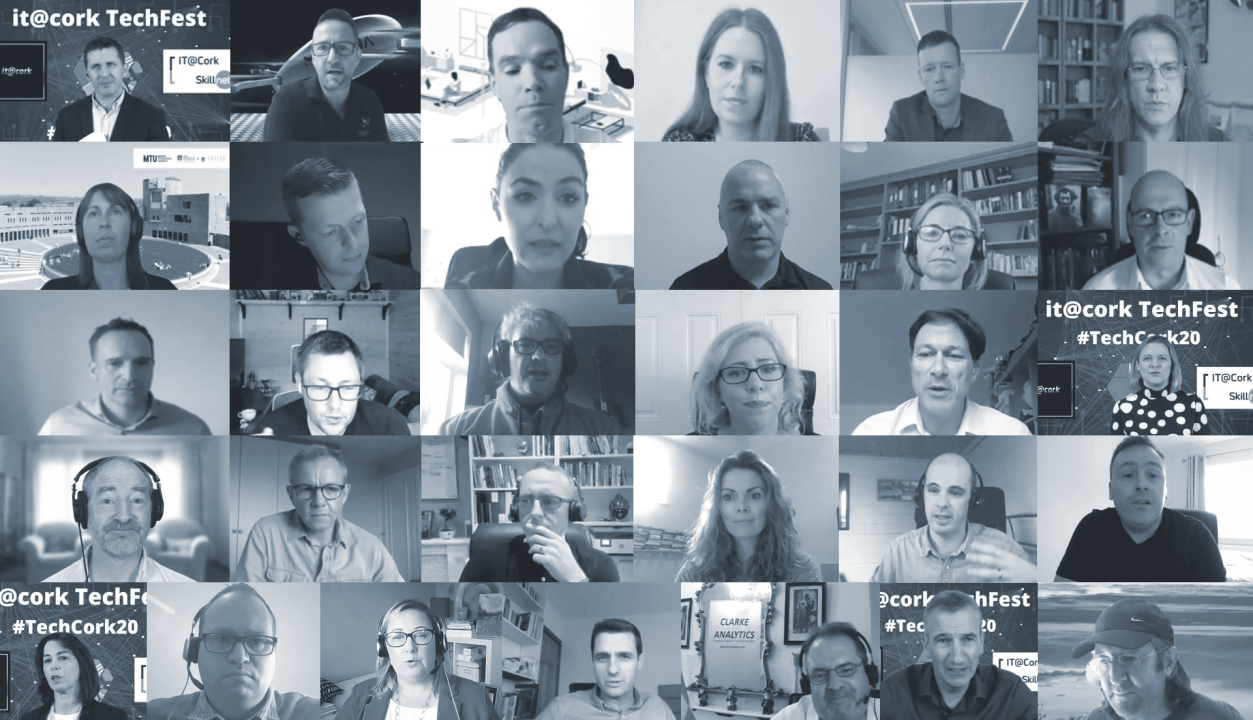The Future Reframed: From Prompt to Product
10 Minute Read - Last week, I got the opportunity to take part on the “Future Focus – What’s Next for Technology?” panel at the Mason Hayes & Curran LLP Technology Conference – Talent, Funding, and the Future. This conference showcased expert panels and thought-provoking discussions dealing with topics around recruitment, talent, equity, investment, and technology. The following is an overview of my panel discussing the value and limitations of ChatGPT, how business should approach adopting AI, the ethical considerations surrounding this technology, and what's coming next. All thoughts and comments are my own.
Chatting You Up
ChatGPT has been taking the technology world by storm since it's launch late last year. I haven't seen this much excitement since Boston Dynamics came out with their robots dancing to "Do You Love Me" from the movie Dirty Dancing (Boston Dynamics, 2020). Over 1 million people had signed up within the first five days and 100 million users in just over one month (CNBC, 2023). But this is the first time that I've actually seen mass excitement/concern from the technology community, programmers specifically, within such a short space of time around a piece of technology. This is due to the combination of how creative the output from this can appear and also the fact that it can write code.
From Words to Code
From a technical point of view, you can ask it to write you a piece of code that will generate a type of functionality that is written in a particular coding language. Although it does require some hand-holding on this particular area, this is a significant advancement in development allowing additional support for basic coding, validation, testing, security scanning, debugging, and other time intensive tasks, allowing developers to focus more on the creative and difficult coding tasks.
How Creative Is It?
From a creative point of view, you can ask for a song to be written that focuses on a specific topic in the style of your favourite artist, and within seconds you have something that is good enough to sing in the shower. You can also ask it to write you an essay in a specific style focusing on a particular point and include references, and again within seconds you have something that can get a decent grade from a professor. As a result, a number of universities across the world have banned the use of ChatGPT (Business Insider, 2023), others are looking for ways to include it within it's curriculum (Voice Bot, 2023), and some Irish universities are discussing new ways to assess and adapt assignments (Irish Times, 2023).
How Believable Is It?
A good example of this comes from psychologist and author Jordan Peterson. The author of the Books "12 Rules for Life" and "Beyond Order" asked ChatGPT to write him an essay "that’s a 13th rule for "Beyond Order", written in a style that combines the King James Bible with the Tao Te Ching". He then went on to say how impressed he was that it wrote him 4 pages and it wasn't obvious and he wouldn't have been able to tell that he didn't write it (Modern Wisdom, 2022).
What Are the Limitations?
All of the above sounds incredible. And in fairness, it really is. But it's important to note that there are some limitations and considerations when it comes to it's use. An example of some are the following:
- It does not have a direct connection to the internet. Therefore any real-time information like sports score, stock prices, etc... cannot be accessed.
- 2021 was the last data that it was trained on. Therefore anything that has happened since 2021 cannot be incorporated into its responses.
- The responses are largely based on patterns and therefore may also be inaccurate. As a result, Stack Overflow, the populate developer community, banned users from responding with AI generated answers due to inaccurate results (The Verge, 2022).
- As it's based on training data, the bias and stereotypes that exist from its sources may be apparent in the responses.
- The responses will not have common sense or emotional intelligence and therefore may be lacking in empathy and an understanding of complex emotional or social situations.
- It is currently a text-based model, and therefore cannot respond to visual or audio input.
Good Prompt, Great Response
With the above being said, it highlights the importance of a good prompt. The majority of negative attention around ChatGPT is based on poor instructions or prompts that result in basic or generic responses. There seems to be an art and number of important aspects to creating a better prompt; from defining the role of which you want the response to be returned (e.g. act as a professor) to providing all the context (i.e. provide as much detail as possible). So it's clear that the more information you provide, the better you structure your questions, and the more details you provide in terms of how you want your response, the better the result will be. Either way, the response is a fantastic starting point and a solid foundation to build from.
The Business Value
From a business point of view, this type of technology can be leveraged in a number of ways. For example, ChatGPT can be used in the following ways:
- Customer support: A chatbot that is available 24/7 to handle support queries which can result in increased customer satisfaction due to quicker response times.
- Personalisation: A detailed understanding of the customers' preferences and needs resulting in more aligned recommendations that lead to a higher likelihood of the customer conversions.
- Content creation: Generate consistent product descriptions, brochures, and other marketing material quickly and efficiently.
- Marketing: To assist and create email campaigns and social media posts, and optimise based on customer data with the intended result of better engagement.
- Research: Analyze large amounts of data to delve into customer behaviour, market trends, competitor analysis, etc., enabling the business to make more informed decisions around strategies and growth.
Build or Buy When It Comes To AI
The build or buy discussion expands across many industries, but when it comes to realising true value from technology, there are a number of important factors that must be considered; defining the business value, developing the appropriate use-cases, budgeting the required investment, identifying the team required and also aligning to skills to expertise, all of which I discussed in more detail in a recent article “Industry Future of AI for Health and Wellness”. There are pros and cons of either direction, but it's important to really focus on understanding the answers to the following:
- Intention: If you want to retain the knowledge internally, build something that's core to your proposition, and potentially have IP associated, the build is your best option. If it's just going to be used as a small part to a larger product, then buy is probably your best bet. But it's important to consider not only the factors outlined above, but expanding on the following:
- Budget: Buying technology can be a large upfront investment, but building in-house will require a significant investment in time, money, and also resources. It's important to consider your budget and understand what option is more feasible in the long term.
- Skills & Expertise: To build internally, you will need to compile a team of experts across data scientists and software engineering. If you already have this team and skills available, it may not be a major uplift to build in-house. However, if you need to build up the team and skill set required to deliver internally, buying could be a better option.
- Flexibility: If you require a very customised and unique approach to understanding and handling your data, you may need to build in-house to ensure flexibility in adapting to your specific needs. But if it's quite a standard approach you are looking for and doesn't require too much customisability, buying something in may be more aligned to your needs.
- Time to market: In order to build an application from scratch takes a lot of time and effort. If your needs are to get to market as quickly as possible, buying something in would be a lot quicker (in the majority of cases) than building internally.
Data-Driven Challenges
Another important and overarching aspect to consider is the the challenges associated with becoming data-driven (i.e challenges associated with collecting and structuring the data):
- Objective Identification: It can be difficult to combine the right people and knowledge in order to understand the value of the data in alignment with the strategic direction of the business.
- Secure Accessibility & Integration: During business growth, data systems can sometimes become disjointed due to the expansion in the various applications, services, and databases, making it hard to integrate and centralise the data.
- Cultural Resistance: Humans are a creature of habit, so introducing new procedures and processes can often result in some sort of adoption hesitancy.
- Data Overload & Trust: Consolidating and validating data being retrieved from a range of difference sources can be difficult, and often results in the valuable data not being utilised.
Ethical Considerations
In my 3-part series of ethics within AI, I talked about the privacy when it comes to handling personal data, content ownership when it comes to who owns the content created by non-humans, and also ethical strategy when it comes to setting up regulations around the technology - some of which I also discussed during this panel.
"As we move more into the creation of content by AI, the topic of copyright ownership will become increasingly more intriguing" - Graham Baitson
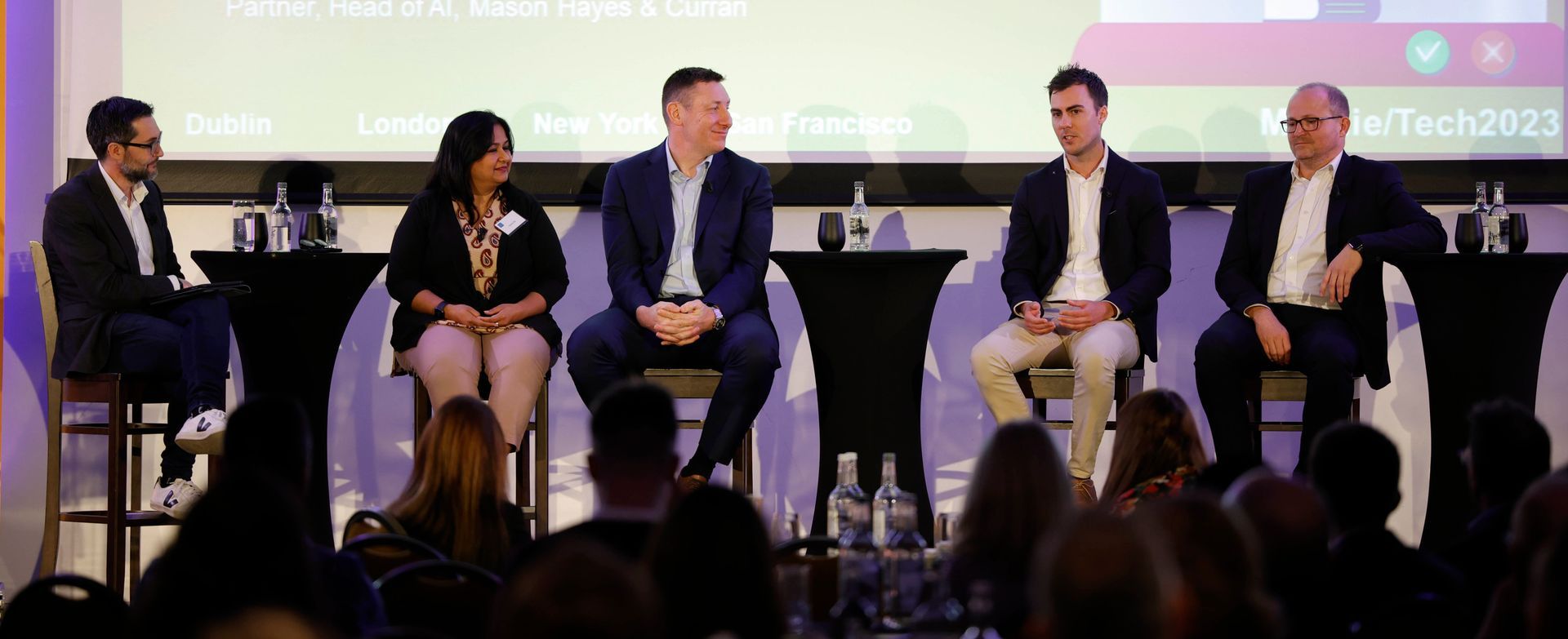
Plagiarism
But one area I wanted to delve into in a little more detail here, specifically related to ChatGPT, is around plagiarism. As mentioned above, universities all over the world are trying to figure out how best to handle the use of ChatGPT when it comes to students submitting content. As a result, Turnitin, the internet-based plagiarism detection service, has officially developed software to detect if a student has used an AI chatbot (The Tab, 2023).
Referencing a point I make above in relation to copyright ownership when content is created by a non-human, the definition of plagiarism can be stated as the act of taking someone else's work and passing it off as your own with giving credit. But this definition becomes clouded due to the nature of when the work has been created by something rather than someone.
Either way, it's opening up a lot of interesting discussions, and making universities rethink the definition of plagiarism and whether AI is ultimately being used as a research tool or a cheating device (Wired, 2023).
The Future
At present, the majority of these technologies and tools all act independently. During the last couple of days, OpenAI introduced their ChatGPT and Whisper APIs to developers allowing them to integrate ChatGPT and Whisper models into their applications and products through their API (OpenAI, 2023).
"The real value will only become apparent when all the disparate AI technologies are all joined up and working together" - Graham Baitson
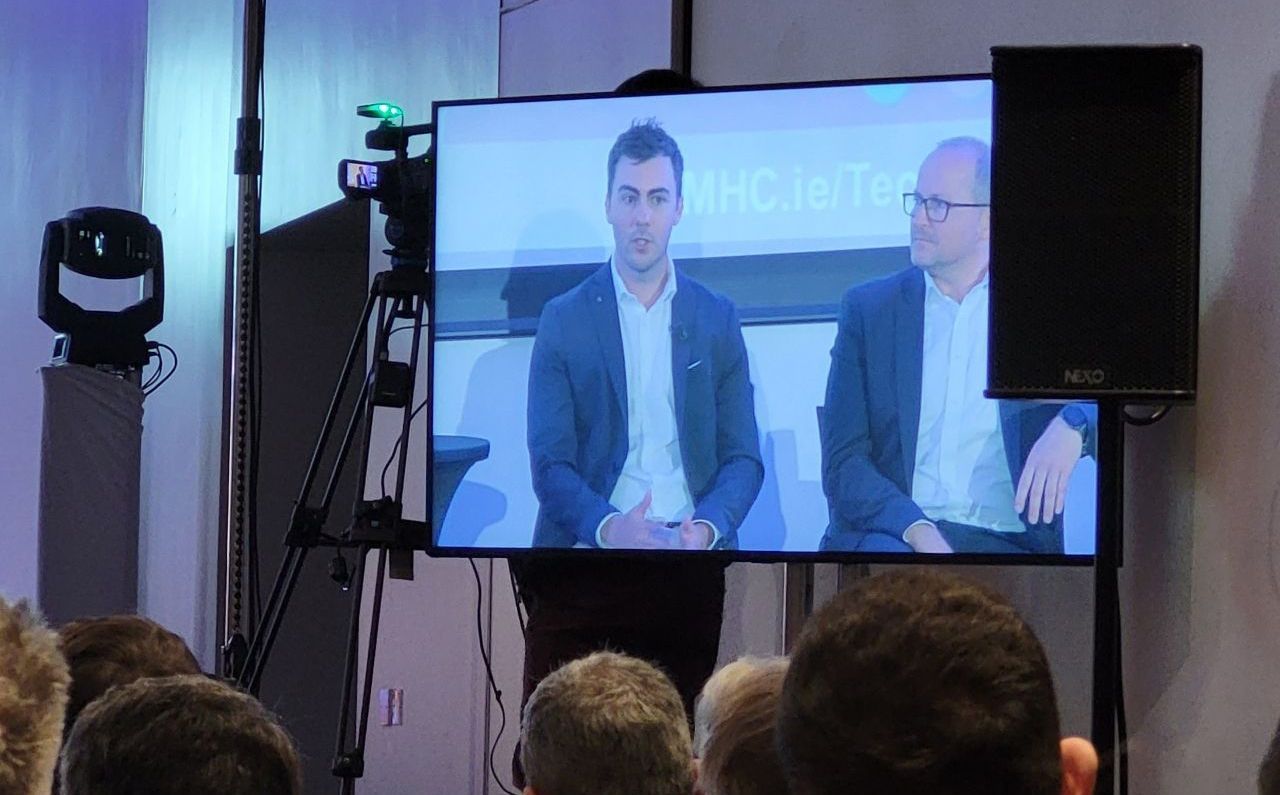
From Prompt to Product
To me, this is the beginning of realising the true potential of these AI tools. We are not too far away from being able to prompt a tool into creating a new product that doesn't exist. The tool will then go off and develop the website, generate the marketing and the social media content, create the complementary images and video material, outline the CAD drawing necessary to build the product, and then send it off to a 3D printer to be printed. From prompt to product. To me, this is the future.
Final Comments
I chose to study technology because I knew it would become such an influential part of our everyday lives, so it was such a privilege to meet so many fascinating people and contribute alongside Oisín Tobin and Brian McElligott from Mason Hayes & Curran LLP, Garret Molloy from Citi, and Sohini De from Empeal Health to discussions around artificial intelligence (AI) and how technology will impact the future of business.
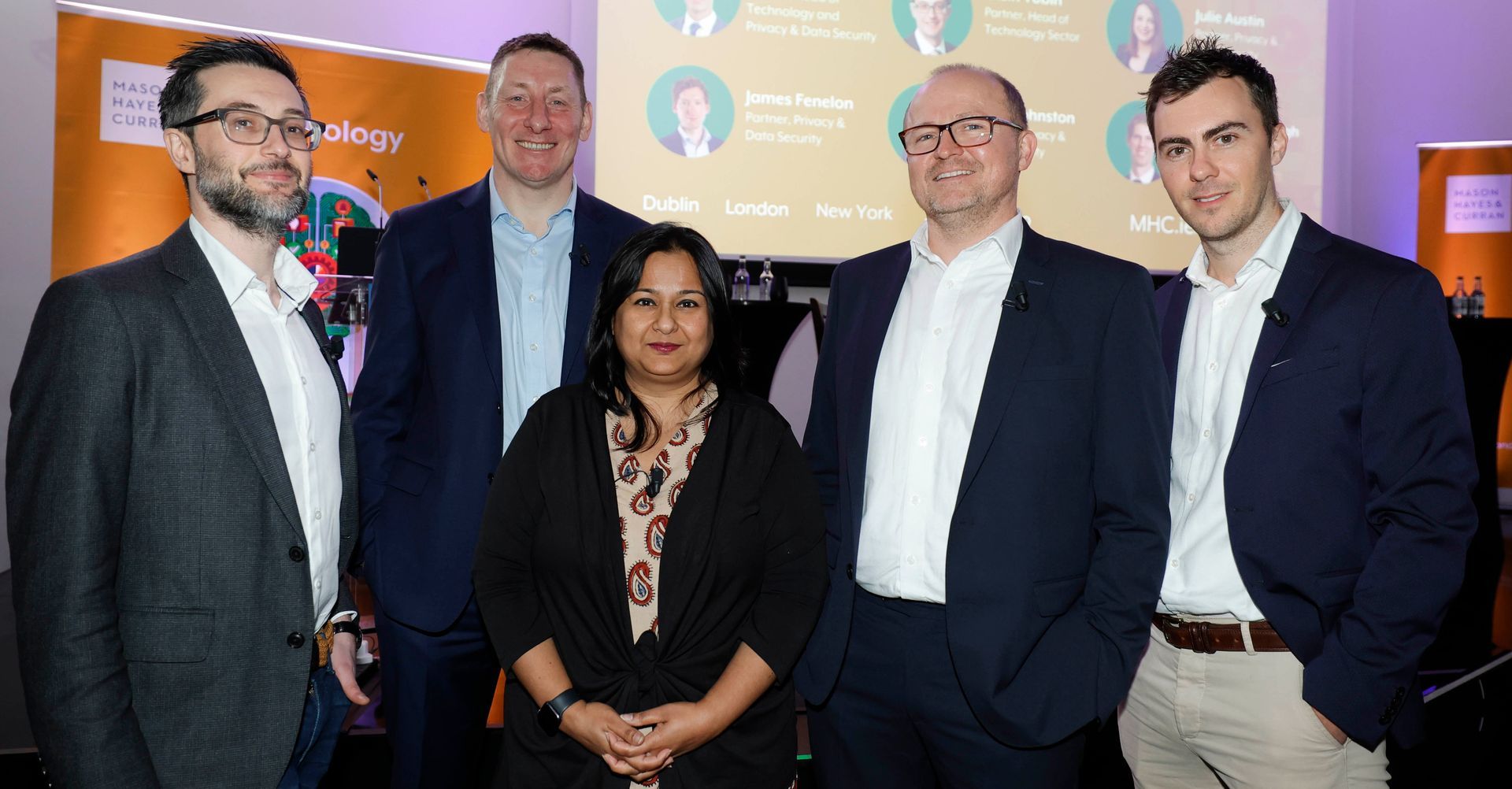
There’s always a question around whether AI will replace jobs. I've discussed this extensively in my article "Are Humans the Next Horse? The Rise of the Robots", but one thing is now for sure, the people and companies who don't utilise AI, will be replaced by the people and companies who do. This is the worst AI will ever be. It's only going to get better from here.
Until next time. I hope you enjoyed the read. GB
Hashtags
#AI #ArtificialIntelligence #DataScience #MachineLearning #ML #Technology #Tech #Trustworthy #Ethics #Policy #Regulations #Governance #Data #DecisionMaking #Compliance #Privacy #Ownership #Copyright #Content #MHCLaw #MHCTech #TechLaw #TechnologyLaw #Talent #Future #Funding #FutureOfWork
References
- Boston Dynamics. (2020). 'Do You Love Me?'. Available at: https://www.youtube.com/watch?v=fn3KWM1kuAw. [Accessed 4 Mar 2023]
- Business Insider. (2023). 'Here are the schools and colleges that have banned the use of ChatGPT over plagiarism and misinformation fears'. Available at: https://www.businessinsider.com/chatgpt-schools-colleges-ban-plagiarism-misinformation-education-2023-1. [Accessed 4 Mar 2023]
- CNBC. (2022). 'All you need to know about ChatGPT, the A.I. chatbot that’s got the world talking and tech giants clashing'. Available at: https://www.cnbc.com/2023/02/08/what-is-chatgpt-viral-ai-chatbot-at-heart-of-microsoft-google-fight.html. [Accessed 4 Mar 2023]
- Irish Times. (2023). 'Irish universities to review how they assess students following threat posed by AI chatbot'. Available at: https://www.irishtimes.com/ireland/education/2023/01/18/irish-universities-to-review-how-they-assess-students-following-threat-posed-by-ai-chatbot/. [Accessed 4 Mar 2023]
- Modern Wisdom. (2022). 'Jordan Peterson's Disturbing Warning About AI and ChatGPT'. Available at: https://www.youtube.com/watch?v=mUkTz_1uzSs. [Accessed 4 Mar 2023]
- OpenAI. (2023). 'Introducing ChatGPT and Whisper APIs'. Available at: https://openai.com/blog/introducing-chatgpt-and-whisper-apis. [Accessed 4 Mar 2023]
- The Tab. (2023). 'Uh oh! Turnitin is officially going to detect if you’ve used an AI chatbot in your essay'. Available at: https://thetab.com/uk/2023/02/09/turnitin-chatgpt-essay-detection-294120. [Accessed 4 Mar 2023]
- The Verge. (2022). 'AI-generated answers temporarily banned on coding Q&A site Stack Overflow'. Available at: https://www.theverge.com/2022/12/5/23493932/chatgpt-ai-generated-answers-temporarily-banned-stack-overflow-llms-dangers. [Accessed 4 Mar 2023]
- Voice Bot. (2023). 'ChatGPT is Banned by These Colleges and Universities'. Available at: https://voicebot.ai/2023/02/09/chatgpt-is-banned-by-these-colleges-and-universities/. [ Accessed 4 Mar 2023]
- Wired. (2023). 'ChatGPT Is Making Universities Rethink Plagiarism'. Available at:
https://www.wired.com/story/chatgpt-college-university-plagiarism/. [Accessed 4 Mar 2023]
